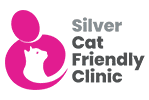Parasite Prevention Snodland
What are Fleas?
Fleas are parasites that affect hundreds of animals each year in the UK. They cause irritation to your pet as the fleas will feed on your pet’s blood then continue to lay eggs causing sore itchy skin. If fleas are left untreated, they can rapidly increase causing an infestation on your pet and within your home. Fleas have been known to lay up to 50 eggs a day. As well as affecting your pet they can also start an infestation in your home making it more difficult to get rid of fleas. Even with prescribed flea and worming and treatment
What are worms?
There are many types of worms that can infect your pet. These include tapeworms, lungworms, hookworms, and roundworms. They are very common in the UK and there are a range of treatments to cure worms in animals. Worms can lay up to 100,000 eggs a day causing major discomfort to your pet. It is important to get your pet seen by a vet as soon as possible if you suspect your dog has worms as this can impact your family’s health too. Signs to look out for visible worms in your pet’s fur or around their ears, bloating in the stomach, loss of appetite, or diarrhea.

Sandhole Vets: Flea and worm treatment Snodland?
Sandhole vets are very familiar with flea and worming treatment plans. We help many pet owners and their pets year in year out to deal with flea infestations and worms. We will examine your animal and together with you, we will create a bespoke plan of flea and worming treatments to best benefit your pet.
For flea treatments, we use a variety of different methods. Prescribed flea treatments target the whole flea life cycle not just the adult flea. Eliminating eggs and larvae will stop the infestation from reoccurring. Spot on’s are treatments that are reapplied every 4 weeks. They need to be applied directly to your pet's skin ideally on the back of their neck. Flea tablets are for pets to digest and will be readministered every 4 weeks to combat every part of the flea cycle. We also prescribe flea and tick collars. We recommend for your pet continue to wear the flea and tick collar for up to 8 months.
In most cases when deciding on which flea treatment course we will also include worming treatment. This can come in a variety of forms including tablets, liquid medication, granules, and spot on’s specifically targeting worms.
Once the medication is administered, within 24 hours you will start to see your pets’ symptoms decrease. As well as sticking to the treatment plan created by your vet you will also have to treat your house. Fleas will lay multiple eggs resulting in you having dormant larvae of eggs on the verge of hatching ready to reinfect your pet. The best thing you can do to disinfect your house for fleas is to vacuum your whole house including outhouses that are available to your pet. Use flea spray covering all fabric surfaces. Follow the instructions on the can and under no circumstances should you use the house spray on your pet.
Contact Sandhole Vets
If you are in need of flea and worming treatment Snodland please get in touch with the team at Sandhole vets today. We can book you in for a consultation at a time that suits you and your pet or advise you on the best course of action to take.
01634 242502 |







